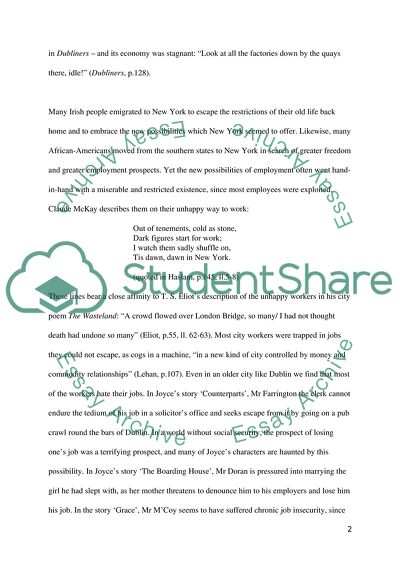Cite this document
(“The city both offers and restricts possibility (Lehan, The City in Essay”, n.d.)
The city both offers and restricts possibility (Lehan, The City in Essay. Retrieved from https://studentshare.org/literature/1592187-the-city-both-offers-and-restricts-possibility-lehan-the-city-in-literature-p-250-in-an-essay-of-2000-words-discuss-this-statement-with-reference-to-two-of-the-set-texts-from-part-5-of-the-module
The city both offers and restricts possibility (Lehan, The City in Essay. Retrieved from https://studentshare.org/literature/1592187-the-city-both-offers-and-restricts-possibility-lehan-the-city-in-literature-p-250-in-an-essay-of-2000-words-discuss-this-statement-with-reference-to-two-of-the-set-texts-from-part-5-of-the-module
(The City Both Offers and Restricts Possibility (Lehan, The City in Essay)
The City Both Offers and Restricts Possibility (Lehan, The City in Essay. https://studentshare.org/literature/1592187-the-city-both-offers-and-restricts-possibility-lehan-the-city-in-literature-p-250-in-an-essay-of-2000-words-discuss-this-statement-with-reference-to-two-of-the-set-texts-from-part-5-of-the-module.
The City Both Offers and Restricts Possibility (Lehan, The City in Essay. https://studentshare.org/literature/1592187-the-city-both-offers-and-restricts-possibility-lehan-the-city-in-literature-p-250-in-an-essay-of-2000-words-discuss-this-statement-with-reference-to-two-of-the-set-texts-from-part-5-of-the-module.
“The City Both Offers and Restricts Possibility (Lehan, The City in Essay”, n.d. https://studentshare.org/literature/1592187-the-city-both-offers-and-restricts-possibility-lehan-the-city-in-literature-p-250-in-an-essay-of-2000-words-discuss-this-statement-with-reference-to-two-of-the-set-texts-from-part-5-of-the-module.


